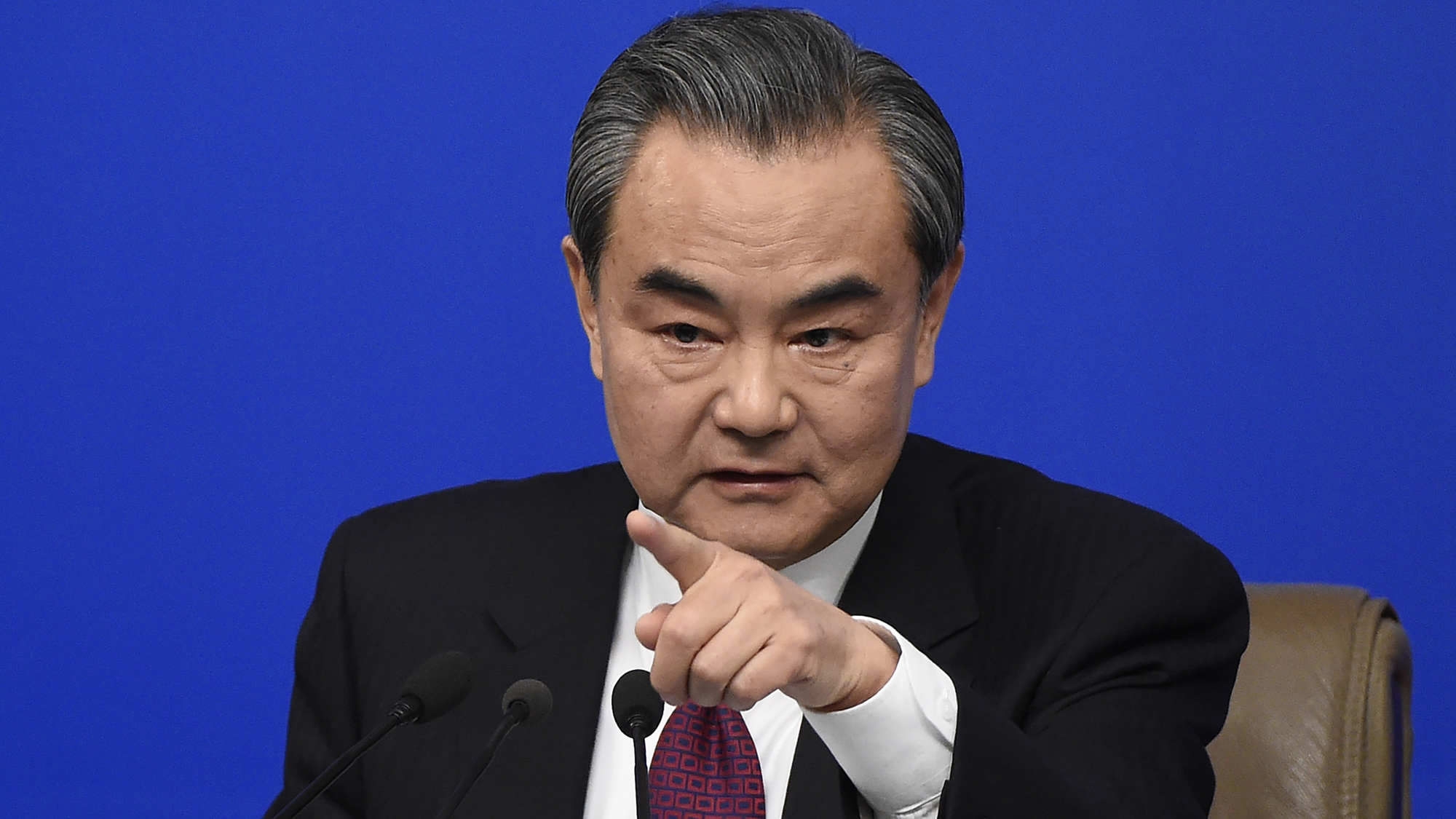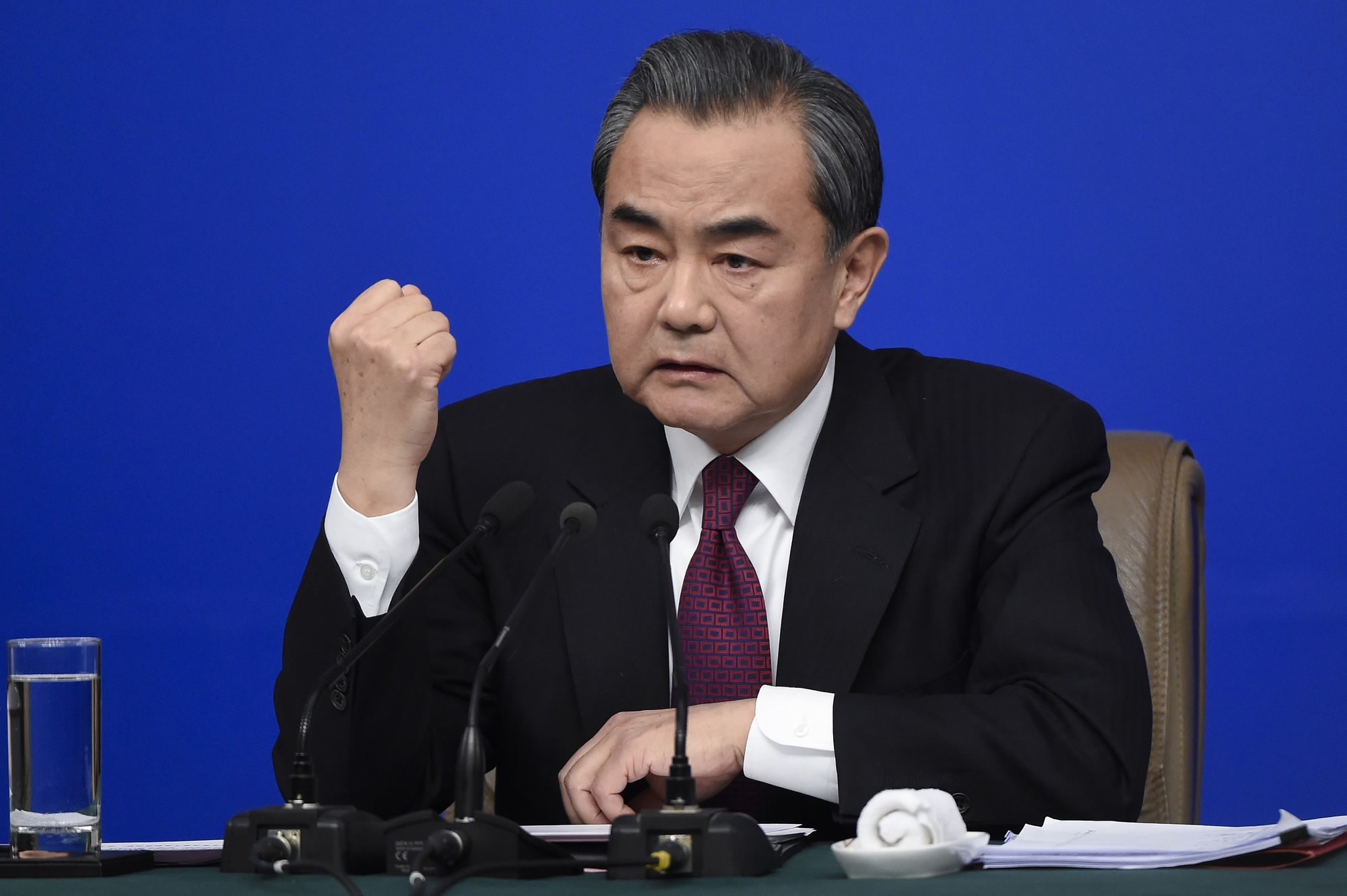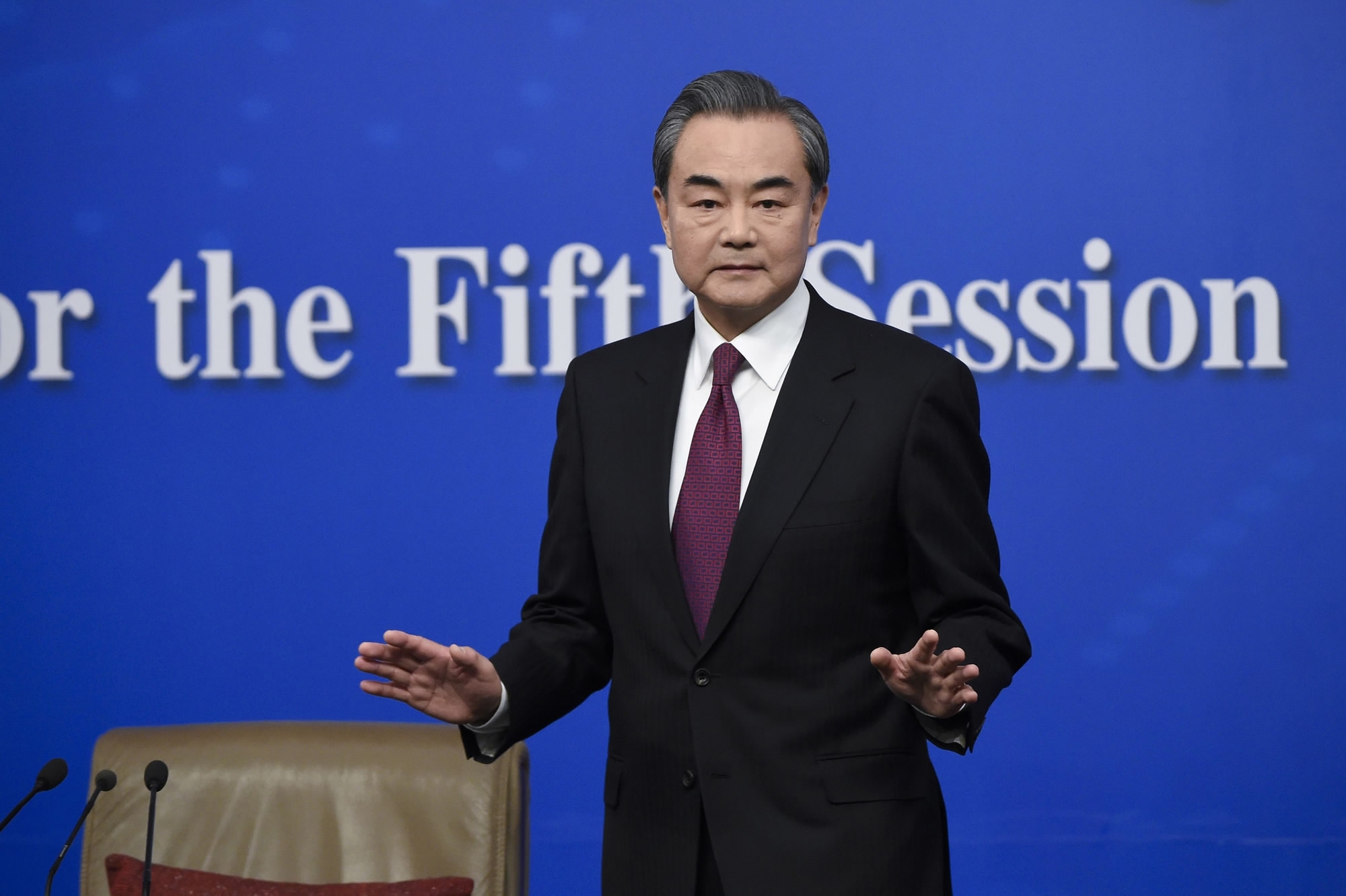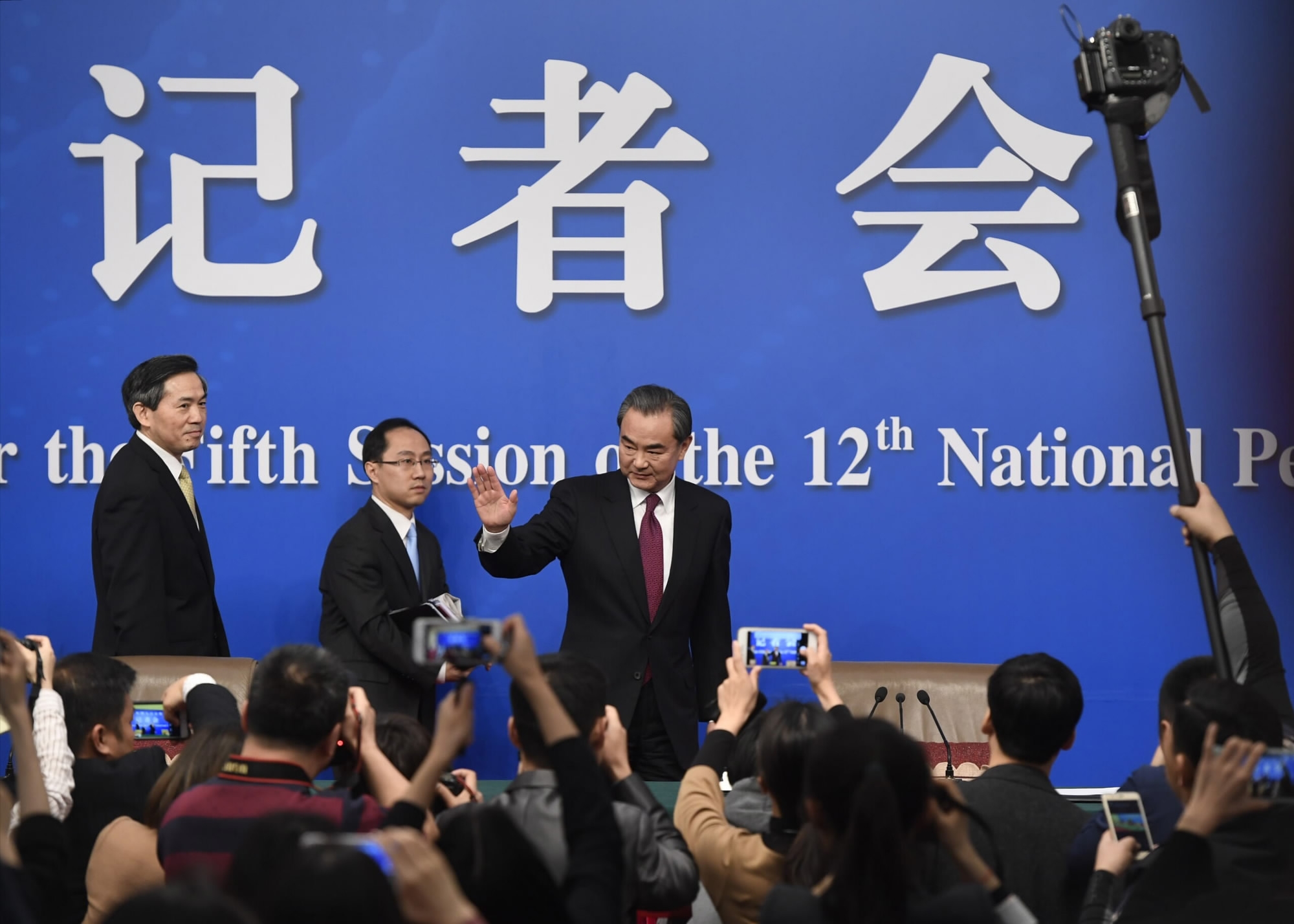
Politics
14:27, 08-Mar-2017
FM Wang Yi: China to shoulder more global responsibility but not seek world leader role
Updated
10:59, 28-Jun-2018

Chinese Foreign Minister Wang Yi said Wednesday that China will continue to be an anchor of international stability, an engine of global growth, a champion of peace and development and a contributor to global governance.
Wang made the remarks at a press conference on the sidelines of the ongoing annual Two Sessions in Beijing.

Foreign Minister Wang Yi answers a question at a press conference during the ongoing annual Two Sessions in Beijing on March 8, 2017. /CFP Photo
Foreign Minister Wang Yi answers a question at a press conference during the ongoing annual Two Sessions in Beijing on March 8, 2017. /CFP Photo
Wang said China will shoulder more responsibility and contribute more to the world instead of seeking to become a global leader.
He fielded questions from reporters for two hours, covering a wide range of issues, from specific pressing issues to relations with other countries in general. Here is a rundown of the major issues, with a few comments from Su Xiaohui, an expert at the China Institute of International Studies.
Korean Peninsula tension
Deployment of the US Terminal High Altitude Area Defense (THAAD) in the Republic of Korea (ROK) is obviously a "wrong choice", Wang said.
He urged the ROK to halt deployment, and said it was the biggest issue affecting China-ROK relations.

The THAAD system undermines China's strategic security, and China has opposed its deployment all along, said Wang.
He warned that those who pursue deployment will end up hurting themselves and others.
Earlier Tuesday, the South Korean Defense Ministry and US Forces Korea said they had brought THAAD elements to a US base south of Seoul, marking the beginning of deployment.
Meanwhile, China has proposed a “double suspension” to defuse the looming crisis on the Korean Peninsula, Wang said. China has called for the DPRK to abandon missile-launching, and for the US and ROK to stop military exercises.
“THAAD surely will bring lots of uncertainties, and ROK should halt the mistake and talk to China,” noted international studies expert Su Xiaohui.
Relations with major powers
Wang said China-US relations were moving steadily and positively.
“As long as we act on the consensus reached between our presidents, follow the principle of no conflicts and non-confrontation, mutual respect and win-win cooperation, there is no reason why China and the United States cannot become excellent partners,” he said.
Expert Su commented, “China is sending out a positive signal to the world. China and US should talk on the same level.”

China's Foreign Minister Wang Yi gestures as he arrives for a press conference on the sidelines of the ongoing Two Sessions in Beijing on March 8, 2017. /CFP Photo
China's Foreign Minister Wang Yi gestures as he arrives for a press conference on the sidelines of the ongoing Two Sessions in Beijing on March 8, 2017. /CFP Photo
As for the China-US-Russia relationship, relations should not be a "seesaw" game, Wang said. The three countries should pursue win-win outcomes and avoid a “zero-sum mentality”, he added.
Wang also said China will continue to support European integration.
Belt and Road Initiative
More than 20 heads of state and government, over 50 leaders of international organizations, over 100 ministerial-level officials, and more than 1,200 delegates from countries and regions will participate in a Belt and Road forum in May in Beijing.
The idea of the Belt and Road Initiative came from China, but it belongs to the world with its benefits flowing to all countries, Wang said.
With the trends of protectionism and unilateralism rising, the Belt and Road Initiative has become a world cause that will help rebalance globalization by making it more inclusive, he added.
The Middle East
The situation in the Middle East has reached a crucial crossroads, Wang noted.
To push the situation in the right direction, three things should happen, he said: the international community should maintain an international consensus on fighting terrorism, adhere to political settlements of regional issues, and put the UN in the driver’s seat.
China not to weaken support for Africa
There will be no weakening in support for Africa no matter how the international situation or world economy may evolve, Wang also said.
China and Africa have a shared future and their cooperation is like a relationship of mutual help between brothers, he said.
China announced 60 billion US dollars in funding for Africa at the Forum on China-Africa Cooperation in December 2015, held in Johannesburg, South Africa.
"What distinguishes China-Africa cooperation is that China always keeps its word," Wang said, adding that so far nearly half of the promised funding support had been disbursed or arranged.

SITEMAP
Copyright © 2018 CGTN. Beijing ICP prepared NO.16065310-3
Copyright © 2018 CGTN. Beijing ICP prepared NO.16065310-3